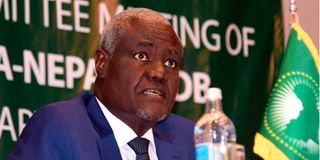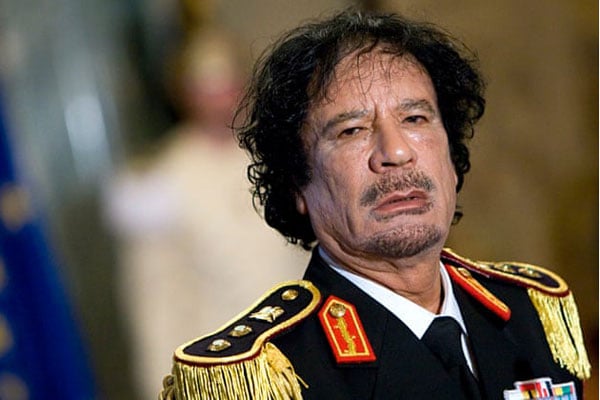African Union to organise Libya reconciliation conference

Chairperson of the African Union Commission Moussa Faki Mahamat at Radisson Blu in Nairobi on January 19,2023 during the African Union meeting of the Coordination Committee and Strategic Partners. Photo | Evans Habil I Nation Media Group
What you need to know:
- Since March last year, an administration in Libya's east backed by military leader Khalifa Haftar -- who has been close to Russia and Egypt -- has challenged the UN-recognised government of Prime Minister Abdulhamid Dbeibah, arguing it has outlived its mandate.
The African Union is organising a national reconciliation conference for Libya, AU Commission chief Moussa Faki Mahamat told AFP on Sunday, the latest bid to restore stability to the conflict-wracked nation.
"We have met with the different parties and we are in the process of working with them on a date and place for the national conference," he said after a press conference wrapping up a two-day AU summit.
The meeting will be chaired by the African Union's pointman on Libya, Republic of Congo President Denis Sassou Nguesso, Faki said.
Libya descended into a decade of violence following the 2011 overthrow of dictator Moamer Kadhafi in a NATO-backed rebellion.
The resulting power grab gave rise to myriad home-grown militias and prompted interventions by Arab powers as well as Turkey, Russia and Western states.
Since March last year, an administration in Libya's east backed by military leader Khalifa Haftar -- who has been close to Russia and Egypt -- has challenged the UN-recognised government of Prime Minister Abdulhamid Dbeibah, arguing it has outlived its mandate.
Earlier this month, the United Nations announced that senior officials from the rival administrations had endorsed a coordination mechanism to clear the country of foreign troops and mercenaries.
The UN mission in Libya hailed "an important step toward achieving sustainable stability and peace in Libya" after a meeting in Cairo on February 8 along with officials from Sudan and Niger.
However, the discussions led by UN envoy Abdoulaye Bathily failed to produce a clear timetable or concrete measures for the withdrawal of foreign fighters.
The UN estimated in late 2021 that there were more than 20,000 foreign fighters, both military and paramilitary, in the country.





